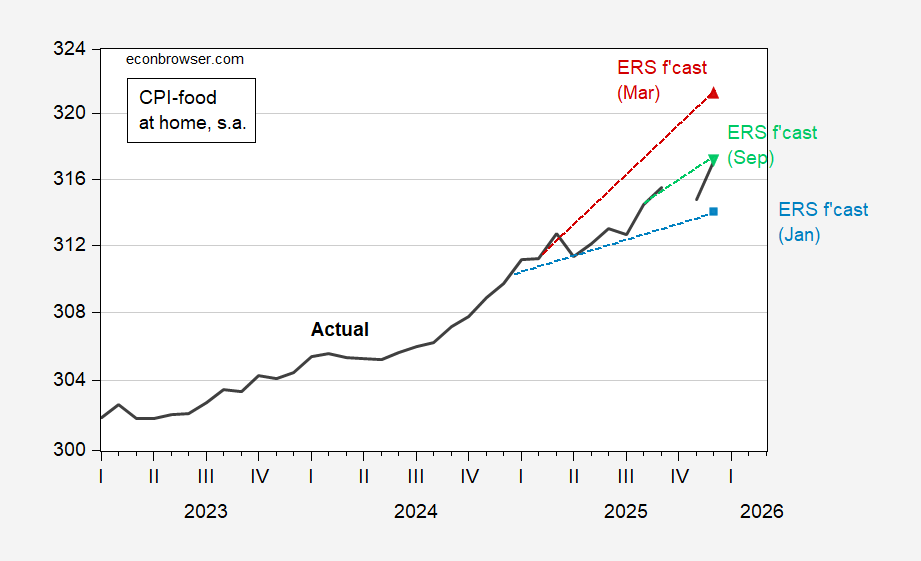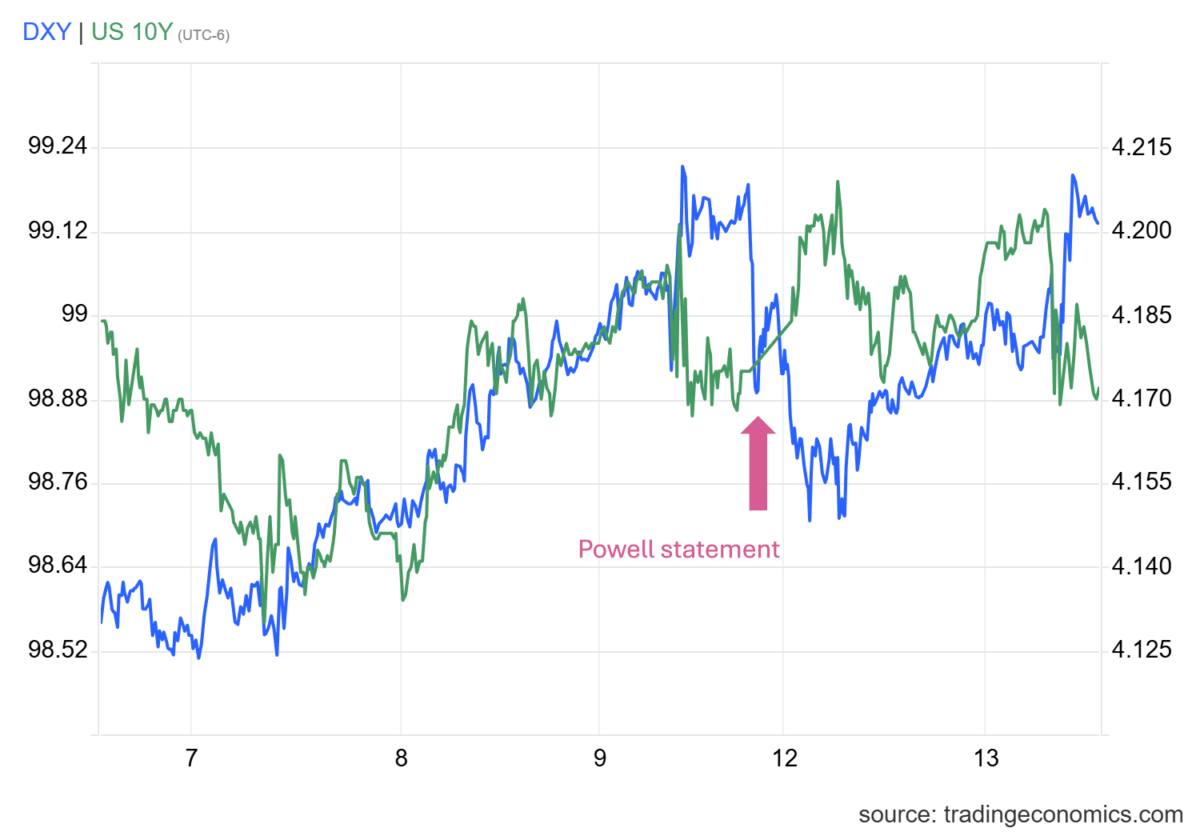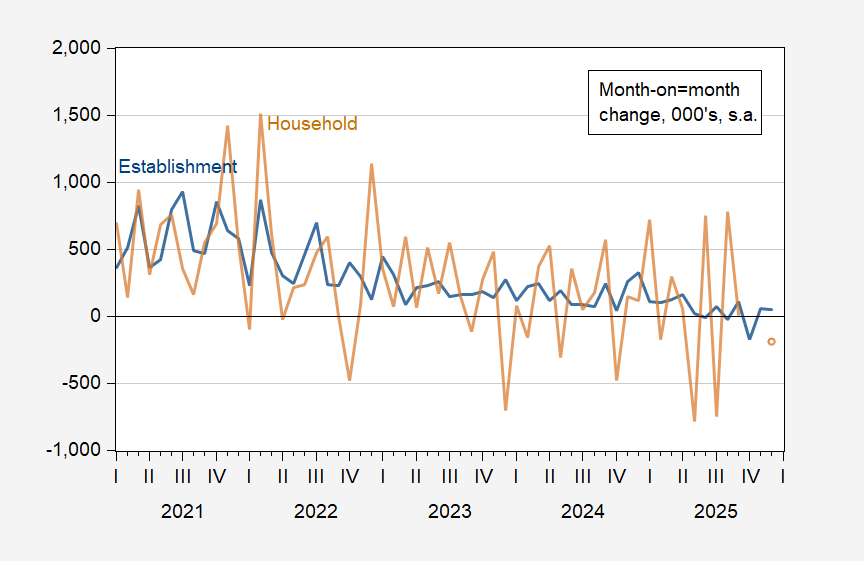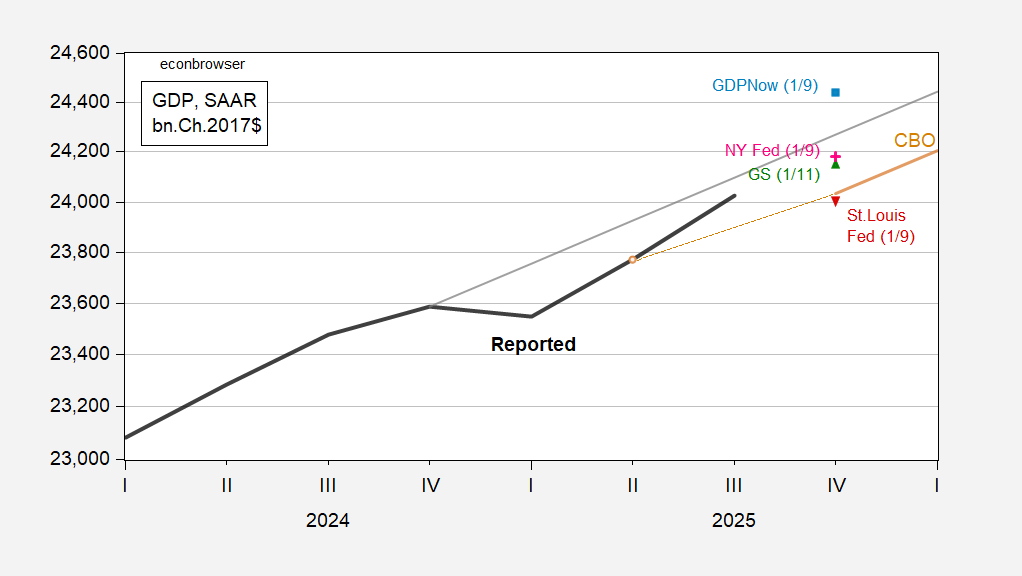
81. China's trade surplus surges 20% to a record $1.2 trillion, even with Trump's tariffs
The Associated Press discusses China's record trade surplus of $1.2 trillion, highlighting its growth despite the tariffs imposed by Trump.
your daily dose of economic commentary

The Associated Press discusses China's record trade surplus of $1.2 trillion, highlighting its growth despite the tariffs imposed by Trump.

Menzie Chinn discusses the rise in grocery prices and forecasts from the USDA Economic Research Service, highlighting the impact on consumers and specific food items like coffee.

An argument that bond yields and the dollar's value fluctuate due to perceptions of Federal Reserve independence and the political landscape surrounding Chair Powell's tenure.
Menzie Chinn discusses how tariffs can serve as national security tools to maintain domestic production of essential goods and address market vulnerabilities.

An argument that a company managing AI answer landing pages deceived users into incurring unexpected monthly charges, prompting federal scrutiny.

Jadrian Wooten discusses various stories related to economic principles and teaching, including unemployment expectations, electric vehicle registrations, and a debate on remote versus in-office work compensation.

An argument that political pressure on the Federal Reserve undermines its independence, risking economic stability and drawing parallels to authoritarian regimes' manipulation of monetary policy.

Scott Cunningham discusses his preparations for teaching, reflections on research, and various topics including AI, economics, and pop culture.

The post discusses Venezuela's need for institutional reforms and careful economic policies to avoid dependency on oil and prevent corruption after Maduro's presidency.

Noah Smith compares Donald Trump's governance style to Napoleon's, suggesting both exhibit gangster-like traits in their approach to power and institutions.

An argument that recent employment trends highlight discrepancies between native-born and foreign-born workers, questioning the validity of certain economic claims and methodologies.

Homeowners affected by wildfires in California report that disputes with insurance companies are hindering their recovery and rebuilding efforts.

Scott Horsley discusses the Trump administration's attempts to influence the Federal Reserve amid an ongoing Justice Department investigation.

The discussion highlights significant discrepancies in GDP nowcasts from various institutions and the divergence between employment and output indicators.

Timothy Taylor discusses the long-term demographic trends in the US, focusing on population aging, fertility rates, and immigration's impact on the economy.

The Associated Press reports on a federal judge's ruling allowing offshore wind farm work to continue amid President Trump's opposition.

Nate Silver analyzes Zohran Mamdani's political positioning, highlighting his outsider appeal and high-risk strategy within the context of New York politics.

An argument that a proposed cap on credit card interest rates is introduced amid rising financial burdens on consumers.

A debate on job preferences highlights how wages reflect trade-offs between salary and job characteristics like flexibility and work-life balance, illustrating economic principles of labor supply.

A discussion on the failed energy meeting involving Trump and oil executives, highlighting the impracticality of his drilling policies and the current economic realities of oil extraction.